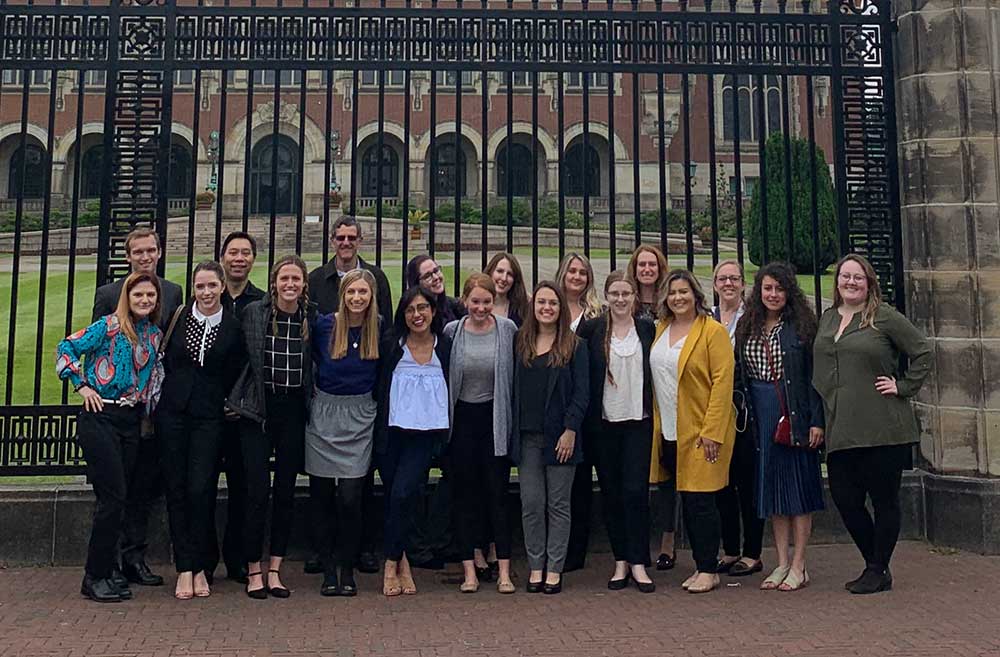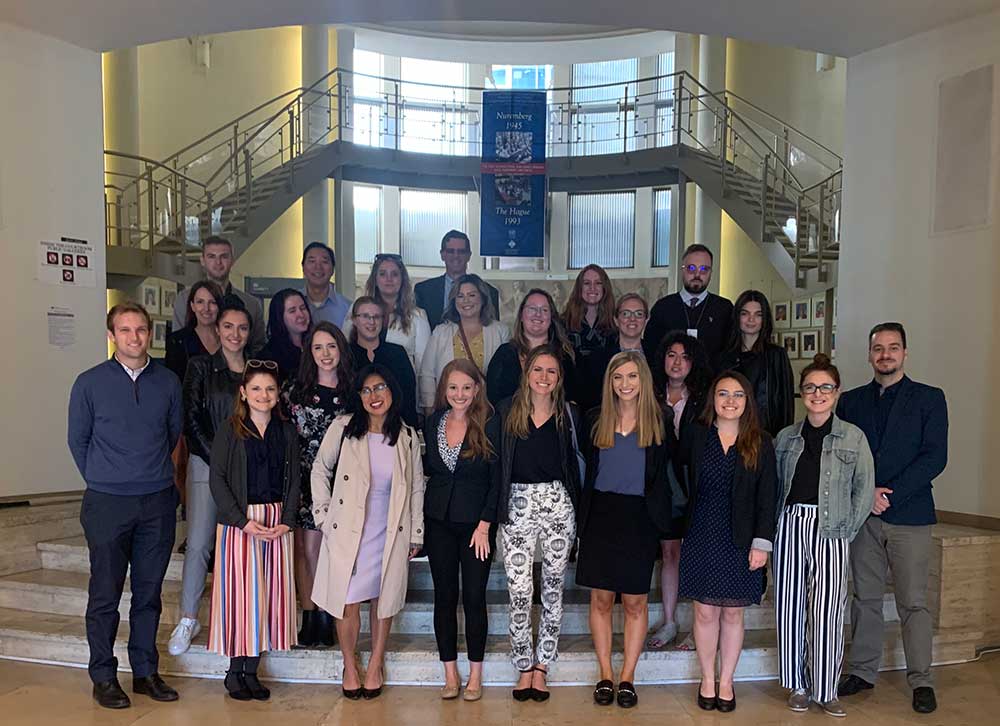This summer I had the incredible opportunity to study International Criminal Law in The Hague in the Netherlands. It was truly an opportunity of a lifetime that I am so grateful to have experienced. The program is so different from any other program that I’ve participated in because the course actually takes place in different international courts and tribunals as opposed to a classroom setting. Instead of attending lectures by different professors, we learned about the different aspects of international criminal law from the people who actually work at the different tribunals.
During our two weeks in The Hague, we visited the Kosovo Specialist Chambers, the Special Tribunal for Lebanon, the International Criminal Court (ICC), the U.S. Iran Claims Tribunal, the International Residual Mechanism for Criminal Tribunals (IRMCT), the Permanent Court of Arbitration (PCA), the International Court of Justice (ICJ) as well as the Organization for Prevention of Chemical Weapons (OPCW). We spoke to a variety of professionals including international judges, counsel for victims’ as well as counsel for the prosecution and defense teams, members of the chambers of the different tribunals, and even an interpreter for the ICC.
While I enjoyed all of the site visits we attended, the highlight of the program for me was viewing the Prosecutor v. Dominic Ongwen proceedings at the ICC. Dominic Ongwen was allegedly a commander of the Lord’s Resistance Army (LRA) in Uganda under the command of Joseph Kony. The Lord’s Resistance Army, an armed group, allegedly carried out an insurgency against the Government of Uganda and the Ugandan Army. According to the Pre-Trial Chamber of the ICC, there were reasonable grounds to believe that the LRA had been directing attacks against civilian populations, and that, in pursuing its goals, the LRA had engaged in a cycle of violence and established a pattern of “brutalization of civilians.” This had been carried out by acts including murder, abduction, sexual enslavement, mutilation, and mass burnings of houses and looting of camp settlements. Civilians, including children, are believed to have been abducted and forcibly “recruited” as fighters, porters, and sex slaves to serve the LRA and to contribute to attacks against the Ugandan army and civilian communities.
As someone who became interested in Kony and the LRA after the Kony 2012 movement, it was truly incredible to witness part of the trial of someone who was so integral to the LRA’s movement. To be able to watch Ongwen’s reactions as a victim shared their story was a truly moving experience. Ongwen in particular was incredibly interesting because he had been a child soldier and indoctrinated at a very young age so there was an element of weighing whether he was a victim, and to what extent this would mitigate the damage he allegedly caused as a commander.
Outside of the academic program, The Hague had a lot to offer for our 2-week stay. Whether it was a relaxing evening at Scheveningen beach or a morning at the Mauritshuis museum to see The Girl with the Pearl Earring and original Rembrandt paintings, there was always something to do. It was also incredibly easy to catch a 40-minute train to Amsterdam to visit all that the city has to offer including the Anne Frank Museum and the Van Gogh Museum.
Overall, I could not have asked to have participated in a better program. Being able to have breakfast with an international judge, before listening to a lawyer from Chile discuss the importance of giving a voice to victims in Uganda was just one of the many experiences that I will never forget. I would highly recommend this program to anyone who is interested in a program beyond the classroom that gives you a look into what life really looks like within the different international tribunals. It was truly one of the best experiences I have had abroad.

